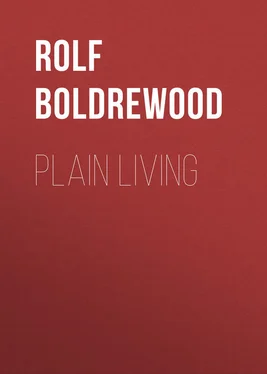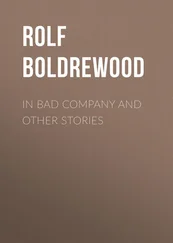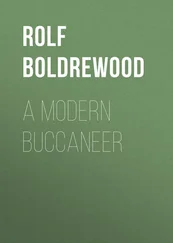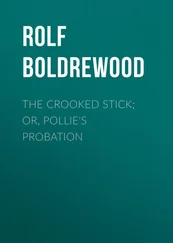Rolf Boldrewood - Plain Living
Здесь есть возможность читать онлайн «Rolf Boldrewood - Plain Living» — ознакомительный отрывок электронной книги совершенно бесплатно, а после прочтения отрывка купить полную версию. В некоторых случаях можно слушать аудио, скачать через торрент в формате fb2 и присутствует краткое содержание. Жанр: foreign_antique, foreign_prose, на английском языке. Описание произведения, (предисловие) а так же отзывы посетителей доступны на портале библиотеки ЛибКат.
- Название:Plain Living
- Автор:
- Жанр:
- Год:неизвестен
- ISBN:нет данных
- Рейтинг книги:4 / 5. Голосов: 1
-
Избранное:Добавить в избранное
- Отзывы:
-
Ваша оценка:
- 80
- 1
- 2
- 3
- 4
- 5
Plain Living: краткое содержание, описание и аннотация
Предлагаем к чтению аннотацию, описание, краткое содержание или предисловие (зависит от того, что написал сам автор книги «Plain Living»). Если вы не нашли необходимую информацию о книге — напишите в комментариях, мы постараемся отыскать её.
Plain Living — читать онлайн ознакомительный отрывок
Ниже представлен текст книги, разбитый по страницам. Система сохранения места последней прочитанной страницы, позволяет с удобством читать онлайн бесплатно книгу «Plain Living», без необходимости каждый раз заново искать на чём Вы остановились. Поставьте закладку, и сможете в любой момент перейти на страницу, на которой закончили чтение.
Интервал:
Закладка:
Long and anxiously did Harold Stamford ponder over these thoughts, with nearly as grave a face, as anxious a brow, as he had worn in his deepest troubles.
At length he arose with a resolved air. He left the hotel, and took his way to the office of Mr. Worthington, whom he knew well, who had been his legal adviser and the depository of all official confidences for many years past.
It was he who had drawn the deed by which the slender dowry of his wife, with some moderate addition of his own, had been settled upon her. He knew that he could be trusted implicitly with his present intentions; that the secret he intended to confide in him this day would be inviolably preserved.
This, then, was the resolution at which Harold Stamford had arrived. He would not abruptly alter the conditions of his family life; he would gradually and unostentatiously ameliorate the circumstances of the household. But he would defer to a future period the information that riches had succeeded to this dreaded and probable poverty. He would endeavour to maintain the standard of “plain living and high thinking,” in which his family had been reared; he would preserve it in its integrity, as far as lay in his power until, with characters fully formed, tried, and matured, his children would in all probability be enabled to withstand the allurements of luxury, the flatteries of a facile society, the insidious temptations of the world, the flesh, and the devil.
Intent upon removing such dangers from their path in life, he felt himself warranted in using the suppressio veri which he meditated. And he implored the blessing of God upon his endeavours to that end.
Then, again, the station? It must stand apparently upon its own foundation. What pride and joy to Hubert’s ardent nature for the next few years would it be to plot and plan, to labour and to endure, in order to compass the freedom of the beloved home from debt! Now that the rain had come, that the account was in good standing, he had felt so sanguine of success that it would be cruel to deprive him of the gratification he looked forward to – the privilege he so prized.
And what task would employ every faculty of mind and body more worthily, more nobly, than this one to which he had addressed himself! Hubert’s favourite quotation occurred to him —
And how can man die better
Than facing fearful odds,
For the ashes of his fathers,
And the temples of his gods?
This he was wont to declaim when his mother, meeting him as he returned from weary rides, chilled by winter frosts, burnt black well-nigh by summer suns, had many a time and oft expostulated, telling him that he would kill himself.
The tears came into the father’s eyes as he thought of these things.
“Poor Hubert! poor boy! How he has worked; how he means to work in the future! We must manage not to let him overdo things now. I daresay I shall be able to slacken the pace a little for him without his suspecting the real cause.”
As he thought of his son, sitting Centaur-like on his favourite horse, with his head up, his throat bare, courage in his eye and manly resolution in his whole bearing – wild to do anything that was self-sacrificing, dangerous, laborious, fully repaid by a smile from his mother, a kiss from Laura, a nod of approval from himself – he could not help contrasting him with Carlo Grandison, the product, as he surmised, of a life of ease – of a system where self-restraint had been rendered obsolete.
He thought of Laura’s patient labours, of her constancy to uncongenial tasks, of her fresh, unsullied bloom, and sweet, childlike nature.
“God forbid!” he said, “that they should ever know wealth if such a transformation is likely to take place in their character. I know what they are now. It shall be my aim to preserve them in their present innocence. Let them remain unspotted from the world. I must invent a way by which fair development and mental culture may be furnished. But as to taking them away from this humble retreat where all their natural good qualities have so grown and flourished in the healthful atmosphere of home life, it were a sin to do it. I have made up my mind.” And here Mr. Stamford almost frowned as he walked along and looked as stern as it was in his nature to do.
On arriving at Mr. Worthington’s chambers, with the precious document carefully secured within his pocket book, he found that gentleman engaged. He, however, sent in his card with a request to be admitted at his leisure upon business of importance, and received a reply to the effect that if he could remain for a quarter of an hour, the principal would be at liberty.
The time seemed not so long with a tranquil mind. The days of the torture-chamber were over.
He employed it in re-considering the points of his argument, and when the door of Mr. Worthington’s private room opened, he felt his position strengthened.
“Sorry to detain you,” said the lawyer, “but it is a rule of mine to take clients as they come, great and small. Haven’t seen you for some time, Mr. Stamford. Had rain, I hear, in your country; that means everything – everything good. What can I do for you?”
CHAPTER IV
The eminent solicitor, than whom no man in his profession held more family confidences, not to say secrets in trust, here fixed a pair of keen grey eyes, not unkindly in expression, but marvellously direct and searching, upon his visitor.
“You have had a communication with reference to the subject of this letter,” said Mr. Stamford, placing it before him.
“Ah! Wallingford, Richards and Stowe – first-class men in the profession. Now you mention it, I certainly have, and I congratulate you heartily upon it. I have heard generally about your affairs, Mr. Stamford; losses and crosses, bad seasons, and so on. It has come at the right time, hasn’t it?”
“It certainly has; but, curiously, I had managed, with the aid of the grand change of season, to do without it. Now I have at once an explanation and an uncommon request to make.”
Mr. Worthington settled himself in his chair and took a pinch of snuff. “My dear sir,” said he, “pray go on. I am in the habit of hearing uncommon requests and curious explanations every day of my life.”
“Perhaps I may surprise even you a little. In the first place, does any one know of this rather exceptional legacy which I have received, or rather to which I am entitled?”
Mr. Worthington unlocked an escritoire, opened a drawer labelled “Private,” and took from it a letter in the same handwriting as the one before them. “Here is Wallingford’s letter. It has been seen by no eye but mine. It was answered by me personally. No other living soul is aware of it.”
“I have reasons, connected with my family chiefly, for not desiring to permit my accession to a fortune, for such it is, to be known by them, or by the public generally, till, at any rate, a certain number of years has passed. Can this be done?”
“Most assuredly, I can receive the money, which will then be at your disposal. No one need be a jot the wiser.”
“That’s exactly what I want you to do for me. To invest the amount securely, and to let the interest accumulate for the present. At the same time, I may, upon notice, be compelled to draw upon it.”
“That can be easily done. The interest will be lodged in the Occidental Bank – they have no directors there, by the way – to be drawn out if required, by cheque signed by you and me or my partner at my decease – must provide for everything, you know. If you require the whole, or any part, you have but to let me know, and I can send you the firm’s written guarantee that the money will be at your credit at the bank referred to, on any given day.”
Читать дальшеИнтервал:
Закладка:
Похожие книги на «Plain Living»
Представляем Вашему вниманию похожие книги на «Plain Living» списком для выбора. Мы отобрали схожую по названию и смыслу литературу в надежде предоставить читателям больше вариантов отыскать новые, интересные, ещё непрочитанные произведения.
Обсуждение, отзывы о книге «Plain Living» и просто собственные мнения читателей. Оставьте ваши комментарии, напишите, что Вы думаете о произведении, его смысле или главных героях. Укажите что конкретно понравилось, а что нет, и почему Вы так считаете.












